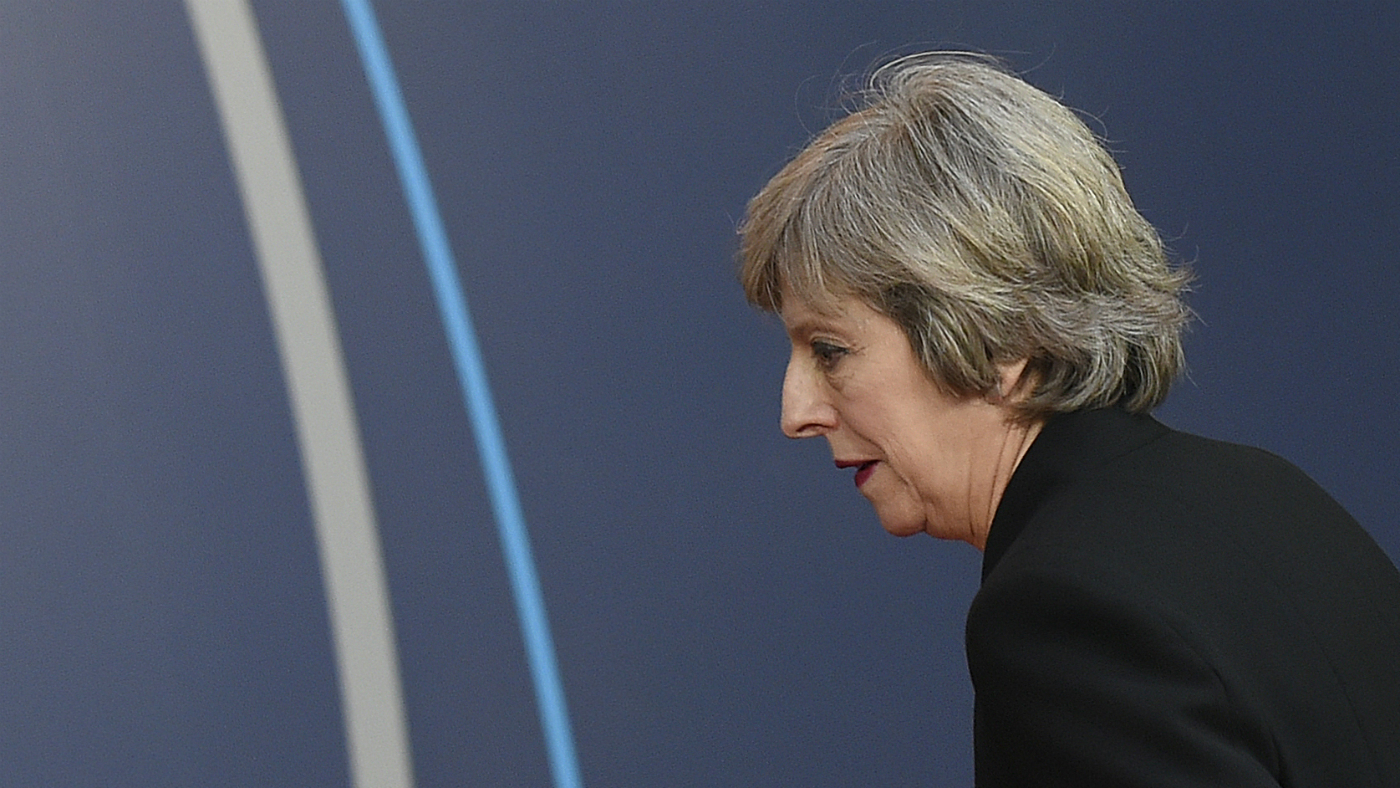EU judges hit Theresa May's 'snoopers' charter'
European Court of Justice rules against 'indiscriminate retention' of emails and electronic data

A free daily email with the biggest news stories of the day – and the best features from TheWeek.com
You are now subscribed
Your newsletter sign-up was successful
Theresa May's "snoopers' charter" has suffered a blow after the EU's highest court ruled governments cannot impose blanket monitoring of their citizens' electronic communications.
The European Court of Justice (ECJ) said today that "general and indiscriminate retention" of emails and other electronic data is illegal.
Only targeted interception of traffic and location data is justified - and only then in order to combat terrorism and serious crime, it added.
The Week
Escape your echo chamber. Get the facts behind the news, plus analysis from multiple perspectives.

Sign up for The Week's Free Newsletters
From our morning news briefing to a weekly Good News Newsletter, get the best of The Week delivered directly to your inbox.
From our morning news briefing to a weekly Good News Newsletter, get the best of The Week delivered directly to your inbox.
The Daily Telegraph says the decision is a "major setback" for the Prime Minister, who has been pushing the controversial Investigatory Powers Act (IPA) or "snoopers' charter", while The Independent calls it "an embarrassment".
The IPA, which is set to come into place at the end of this month, forces internet and communications companies to retain their customers' histories for up to a year and allow UK intelligence agencies to blanket collect data and hack into electronic devices.
Privacy groups have vociferously opposed the bill, arguing it represents a draconian extension of existing surveillance powers.
The ECJ's ruling, which is intended to clarify the EU's position on surveillance, was made in response to the 2014 UK Data Retention and Investigatory Powers Act (DRIPA) - a proposal subsequently blocked by the Liberal Democrats under the coalition government.
A free daily email with the biggest news stories of the day – and the best features from TheWeek.com
However, many of its measures are now included in the IPA and will therefore be in breach of the ECJ's ruling.
The Telegraph reports the ruling means the government may have to radically cut the legislation's reach. It could also substantially decrease the number of public bodies that can access the stored data, which currently includes organisations ranging from the Food Standards Agency to HMRC.
However, The Guardian says Brexit could render the ECJ's decision "academic" since the court will have no jurisdiction over the UK once the country leaves the EU.
-
 How to Get to Heaven from Belfast: a ‘highly entertaining ride’
How to Get to Heaven from Belfast: a ‘highly entertaining ride’The Week Recommends Mystery-comedy from the creator of Derry Girls should be ‘your new binge-watch’
-
 The 8 best TV shows of the 1960s
The 8 best TV shows of the 1960sThe standout shows of this decade take viewers from outer space to the Wild West
-
 Microdramas are booming
Microdramas are boomingUnder the radar Scroll to watch a whole movie
-
 How corrupt is the UK?
How corrupt is the UK?The Explainer Decline in standards ‘risks becoming a defining feature of our political culture’ as Britain falls to lowest ever score on global index
-
 The high street: Britain’s next political battleground?
The high street: Britain’s next political battleground?In the Spotlight Mass closure of shops and influx of organised crime are fuelling voter anger, and offer an opening for Reform UK
-
 EU-Mercosur mega trade deal: 25 years in the making
EU-Mercosur mega trade deal: 25 years in the makingThe Explainer Despite opposition from France and Ireland among others, the ‘significant’ agreement with the South American bloc is set to finally go ahead
-
 Biggest political break-ups and make-ups of 2025
Biggest political break-ups and make-ups of 2025The Explainer From Trump and Musk to the UK and the EU, Christmas wouldn’t be Christmas without a round-up of the year’s relationship drama
-
 Who is paying for Europe’s €90bn Ukraine loan?
Who is paying for Europe’s €90bn Ukraine loan?Today’s Big Question Kyiv secures crucial funding but the EU ‘blinked’ at the chance to strike a bold blow against Russia
-
 ‘The menu’s other highlights smack of the surreal’
‘The menu’s other highlights smack of the surreal’Instant Opinion Opinion, comment and editorials of the day
-
 Moscow cheers Trump’s new ‘America First’ strategy
Moscow cheers Trump’s new ‘America First’ strategyspeed read The president’s national security strategy seeks ‘strategic stability’ with Russia
-
 Is a Reform-Tory pact becoming more likely?
Is a Reform-Tory pact becoming more likely?Today’s Big Question Nigel Farage’s party is ahead in the polls but still falls well short of a Commons majority, while Conservatives are still losing MPs to Reform